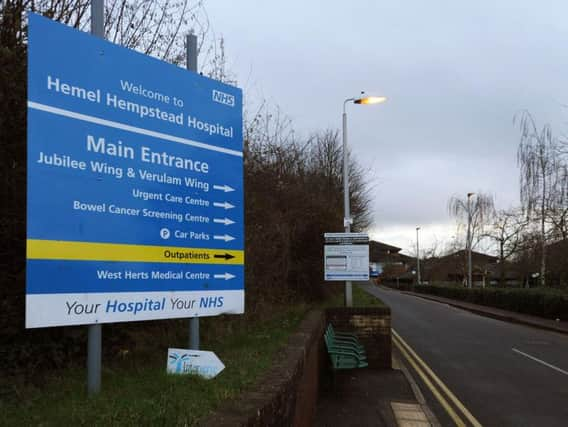£14.3m settlement for boy left brain damaged after Hemel Hempstead Hospital failures


The boy, now 17, who cannot be identified for legal reasons, needed resuscitating after being born at Hemel Hempstead Hospital.
The consequent brain damage means that he suffers with significant cognitive and motor impairment, finding it difficult to carry out simple everyday tasks such as dressing and feeding himself. Experts say this will only worsen as he gets older, and he is expected to need increasing mobility aids in later life.
Advertisement
Hide AdAdvertisement
Hide AdHe will be unable to ever live independently or work, and will need life-long round the clock care, adapted ground floor accommodation and relevant aids, equipment and therapies.
The errors were made after an otherwise normal, full-term pregnancy when the boy’s mother was admitted to the labour ward for delivery.
On admission to the hospital, the baby was found to be well, with a normal heart rate, but later during labour there was no adequate monitoring of the baby’s heartbeat for a significant period, during which he sustained prolonged starvation from oxygen.
As part of the legal case led by medical negligence specialists Hudgell Solicitors, and after subsequent clinical investigations, West Hertfordshire Hospitals NHS Trust admitted that this period of starvation of oxygen had caused the brain damage suffered.
Advertisement
Hide AdAdvertisement
Hide AdSolicitor Arani Yogadeva, of Hudgell Solicitors, said the settlement reflected the ‘catastrophic, life-changing impact’ of the errors made on the delivery ward when the boy was born in October 2000.
She said: “I am so pleased that we have been able to secure the vital care and support which our client needs for the rest of his life, which was the driving force for his parents to embark on this journey. The Judge recognised the impact of the Hospital’s errors on the family as a whole.
“It was accepted by the Hospital Trust that there was a breach of duty as midwives failed to spot abnormalities during labour, which, if detected, would have led to the child being delivered much earlier, and spared him such life-changing injuries.”
The damages settlement includes a £4m initial payment, which will be placed into a trust to be managed by a professional Court of Protection Deputy, alongside the boy’s parents. With subsequent annual payments for the rest of his life expectancy, the damages settlement will be worth around £14.3m.
Advertisement
Hide AdAdvertisement
Hide AdMs Yogadeva added: "Psychological experts agreed that the boy, but for his injuries, was likely to have entered and been successful in a professional career. The case and damages reflect both this, and the sacrifices that his family have undoubtedly made to accommodate his disabilities and help him maximise his potential.
“This settlement will ensure he and his family have the funds and support they need to ensure he enjoys the best quality of life.”
Michael van der Watt, medical director for West Hertfordshire Hospitals NHS Trust, said: “We are pleased that a settlement has been agreed, which will provide for the patient’s future needs on a lifelong basis. We would like to express our admiration for the loving and devoted care that his family have provided to him.
“We carry out a thorough multi-disciplinary review of all serious incidents to capture the learning and make any changes needed and we regularly audit our practice to ensure the learning is embedded.
Advertisement
Hide AdAdvertisement
Hide Ad"We have also invested in a structured learning and development programme for our maternity staff to make sure they refresh their knowledge and keep their practice up-to-date. This includes a strong focus on foetal monitoring and interpretation of monitoring data.
“We have made significant improvements in recent years to our maternity care. Our maternity unit is rated ‘good’ in our latest Care Quality Commission (CQC) inspection and achieves good results across a broad range of clinical outcomes.
"We now have one of the highest midwife to birth ratios in the country and, in contrast to the national trend, we have a low vacancy rate for midwives.”